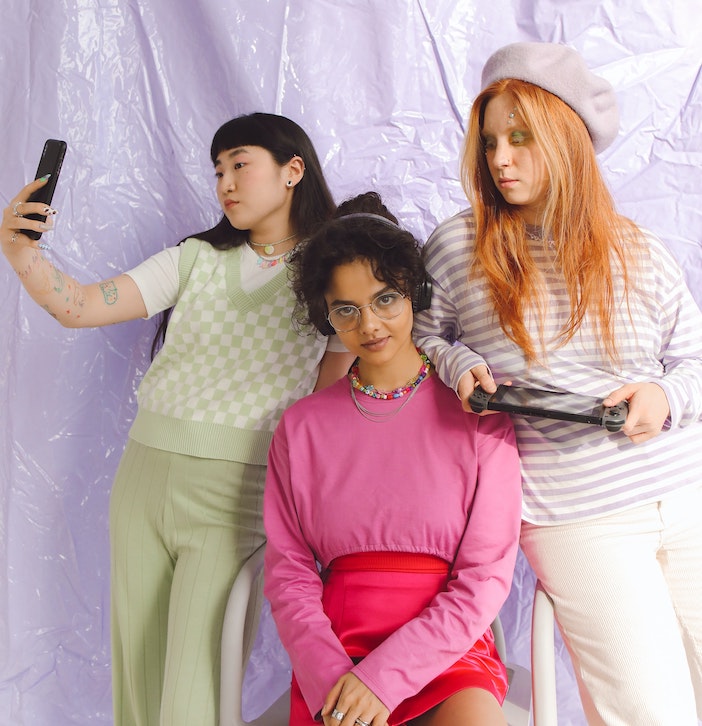Every stage of parenting has its challenges. When they’re babies it’s potty training and playdates. But when they grow into teens, the challenges that parents face don’t get any easier just because the kids no longer wet the bed. You want to bond with your teenager and know what’s going on in their life. Parenting books tell us that we should be there for them as their mentor, the wind beneath their wings, their shoulder to cry on, and that we should love them unconditionally. But it’s easier said than done.
To be a good mentor and shoulder to cry on you need to first know what’s going on in their life, and it’s hard when some teens actively try to push you away, yearning for their own independence.
Recently a friend confided how her son only wants to spend his free time playing online games. She tried taking up gaming in an attempt to bond with him, but eventually gave up. Another friend confessed that his daughter would rather NOT see a movie that she was excited about if it meant seeing it with her dad. They’re not alone. Comedian Gabriel Iglesias, aka Fluffy, has a whole show on how even though he’s one of the top comedians in the world, to his teenage son he’s just boring old Dad.
This brings us back to our headline. How do you become cool to your teenager? Our former teen intern Hélène Wang has some light to shed. She and her mother have one of those rare parent-child relationships that is also, dare we say, a friendship.

“I love going to lunches with my mom, shopping with her, and talking about books together or analyzing something very interesting,” says Hélène, adding: “She is very relaxing to be around. She does not ask me about academic or schoolwork during our quality mother-daughter time. We have the exact same taste in food and clothes.”
So, what do these two talk about that’s so cool? “Life, sometimes she gives me good advice,” says Hélène. “We also just joke around about random things. She has this dry, witty humor that always makes me laugh when I’m sad.”
Hélène’s mom doesn’t fake interest in her daughter’s life. She treats her teenager like she does a girlfriend her own age. Hélène explains: “One time I was quite upset with my friends. I felt like I didn’t fit in very well with them. I told my mom, ‘I think my friends pretend to like me because I try too hard for everything.’” Her mom’s advice? “When I was your age, I loved people who didn’t try. They were either too popular to be friends with me or too handsome to date me. But you see, now I’m happily sitting here with you and they are still too popular to be happy and too handsome to reproduce.” An unconventional answer that brightened Hélène’s day.
Another time, when Hélène was wondering if she has bad posture when she walks, her mom’s answer was “Walk like your ex-boyfriends are walking behind you. It keeps you pretty.” Sassy and downright hilarious.
I know what you’re thinking: It must be easy if they’ve always had a good relationship, but how do I start one if my teen and I have drifted apart?
While my advice to my friends was to get involved in their hobbies, Hélène had some different advice. “A conversation is always the place to start,” she says. “If there is no transparent, open communication then there is no going anywhere.” It’s just kind of like dating. It’s easy to find a common interest, but wanting to actually share your hobbies with someone else takes time. “Instead of being pushy and desperate to spend time with your child, first acknowledge that they’re different than you and need their personal space and interest,” says Hélène. “Be honest, like say, ‘I love you and I want to be more involved in your life.’ Instead of coming across as wanting to monitor them or forcing them to do it, put forth your good intentions and ask them how they feel about it or what they want.”
And just like in any relationship, it’s all about give and take. The parent shouldn’t be the only one trying here. You’re an interesting person and your teen should find something interesting about you that they want to know more about. Hélène explains: “I think children should see their parents as people. Not just as a parent, but as a well-rounded holistic person with a personality. There must be something about your parents that you admire, or dislike, or wonder why they do it that way or find unique.”
Hélène’s advice may be simple and straightforward, but it’s scarier than it sounds. Basically, she’s asking us to put our feelings out there, be vulnerable, and take the chance of getting rejected by our own child. But be brave and remember that you’ve got more in common with your kids than you think. Plus, everyone could always use one more friend in their life, no matter what age they are.
Images: Pexels, Hélène Wang




